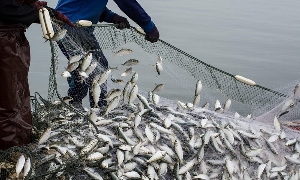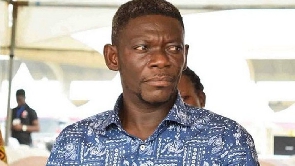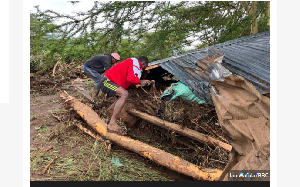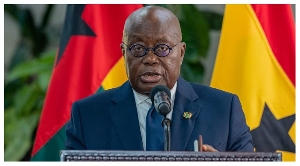Economy of Wednesday, 17 April 2024
Source: FGS Global
African leaders commit to combating industrial overfishing and climate breakdown
Several African nations have reaffirmed their commitment to combating industrial overfishing and addressing the pressing challenges of climate breakdown in African waters at the Our Ocean conference in Athens.
The pledge was made during a side event co-hosted by Blue Ventures and Le Partenariat Régional pour la Conservation de la zone côtière et Marine (PRCM), in collaboration with Bloomberg Ocean Initiative and the Organisation of African, Caribbean and Pacific States (OACPS).
Leaders unveiled a series of major commitments, including the establishment of one of Africa’s largest community-led marine protected areas (MPAs) in Ghana, and an ambition to exceed international targets to protect 30% of the ocean by 2030 from Guinea-Bissau.
Ghana’s first MPA
Mavis Hawa Koomson, Ghana’s Minister of Fisheries and Aquaculture Development, announced her country’s first MPA. The protected area will cover 700km2 of biodiversity-rich coastal waters to be managed and implemented by the community and is slated for formal establishment in 2026.
“Between our ongoing commitment to fisheries transparency and this new commitment towards marine conservation, Ghana is demonstrating strong commitment to the conservation and sustainability of its rich marine resources, for the good of the country and its people,” Minister Koomson said.
Exceeding 30x30
Viriato LuÍs Soares Cassamá, Guinea-Bissau’s Minister of Environment, Biodiversity and Climate Action, drew attention to recent conservation and fisheries successes in Guinea-Bissau and set out his country’s ambition for going beyond the internationally recognised 30x30 target.
He highlighted several initiatives, including the proposed inclusion of the Bijagós Archipelago on the UNESCO World Natural Heritage Site list, and the creation of the second Biosphere Reserve in the Cacheu Complex and the coastal islands of Geta-Pixice.
“Currently, Guinea-Bissau has achieved a significant milestone, with 26.3% of its territory designated as protected areas, of which 12.6% are marine protected areas,” he said. “We are confident that if we continue on this path, we will not only achieve but significantly exceed the 30x30 target.”
Making fisheries FiTI for purpose
Industrial overfishing, pollution, and climate breakdown are changing African waters in unprecedented ways, jeopardizing marine ecosystems and threatening the food security of millions of livelihoods across the continent. Illegal, Unregulated and Unreported (IUU) fishing continues to decimate fish stocks, resulting in an annual loss of over US$11 billion in Africa.
Recognizing the urgency of the situation, organizations such as the Fisheries Transparency Initiative (FiTI) are gaining momentum, urging governments to enhance transparency and ensure meaningful participation of stakeholders, including small-scale fishers in decision-making.
Countries like Madagascar and Cabo Verde have also made significant strides in enhancing fisheries governance, progressing to candidate status under the FiTI standard. The Union of the Comoros for example is accelerating efforts to join these ranks, with a dedicated roadmap for full membership by the year's end.
"We are continuing to step up our efforts to ensure good governance in the fisheries sector by working with the Fisheries Transparency Initiative, commonly known as FiTI. The Union of the Comoros has drawn up a roadmap to facilitate the process of its full membership of the organisation before the end of the year,” said Houmedi Msaidié, Ministère de l’Agriculture, de la Pêche, de l’Environnement, du Tourisme et de l’Artisanat, Union of the Comoros.
“Amidst the challenges of climate change, industrial overfishing, and pollution, it’s inspiring to witness African leaders embracing transparency as an essential tool for ocean governance,” said Melissa Wright, who leads the Bloomberg Ocean Initiative at Bloomberg Philanthropies.
“We hope that these commitments from African leaders serve as inspiration to leaders across the region and the world to further ocean conservation, including by adopting transparency measures and establishing new marine protected areas.”
In recent years, global agreements such as the Kunming-Montreal Global Biodiversity Framework, adopted in 2022, have highlighted the significance of marine protected areas (MPAs), committing the world to safeguarding 30% of land and water by 2030 (30x30).
When properly managed and funded – with communities in the driving seat – MPAs offer a win-win solution for people and nature alike, replenishing fisheries and strengthening local livelihoods. They stand as essential tools in combating climate breakdown, coastal poverty, and the detrimental effects of industrial fishing.
The historic High Seas Treaty paves a clear pathway for establishing MPAs on the high seas, crucial for achieving the 30×30 target and preserving ocean biodiversity.
Yet, only 17% of African waters are currently designated as protected areas, highlighting the need for accelerated action. The commitments made by Ghana and Guinea-Bissau at the Our Ocean conference signify a crucial step forward in addressing this pressing issue and safeguarding the future of Africa's marine ecosystems.











